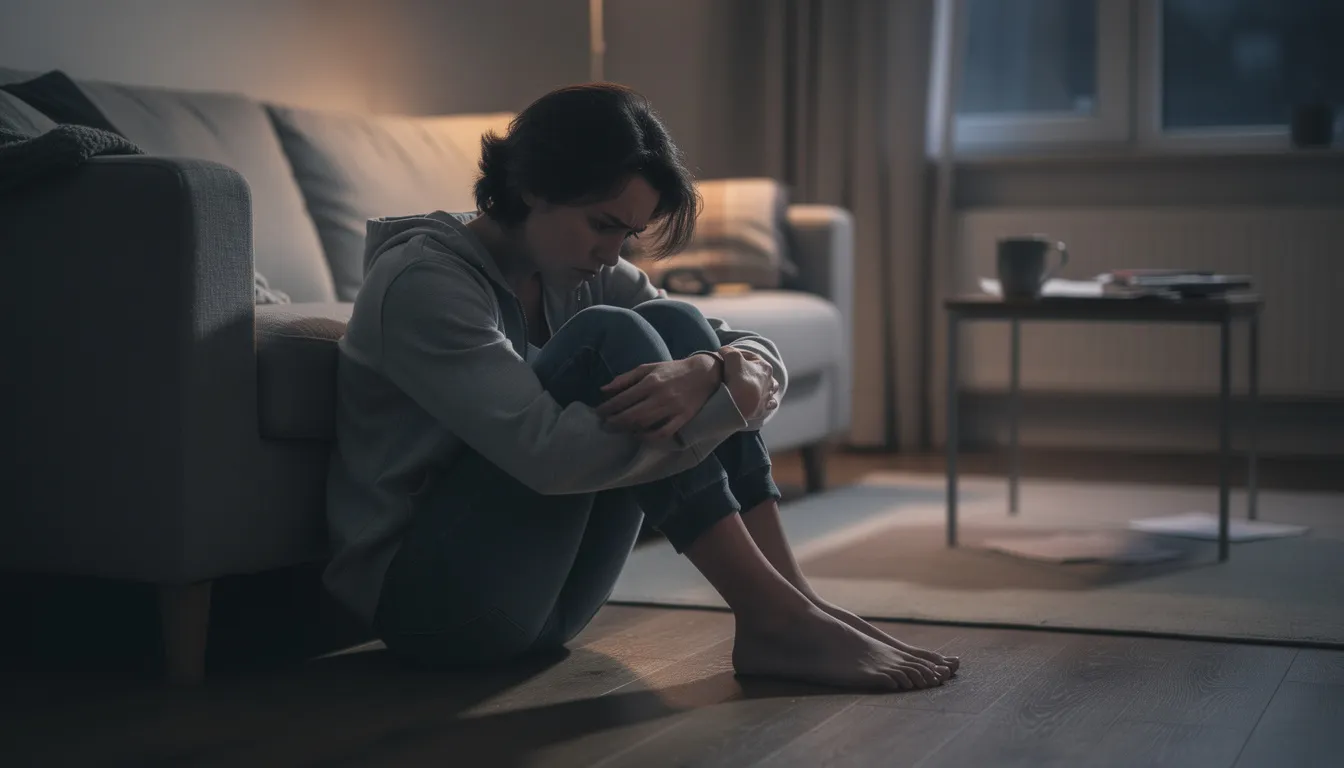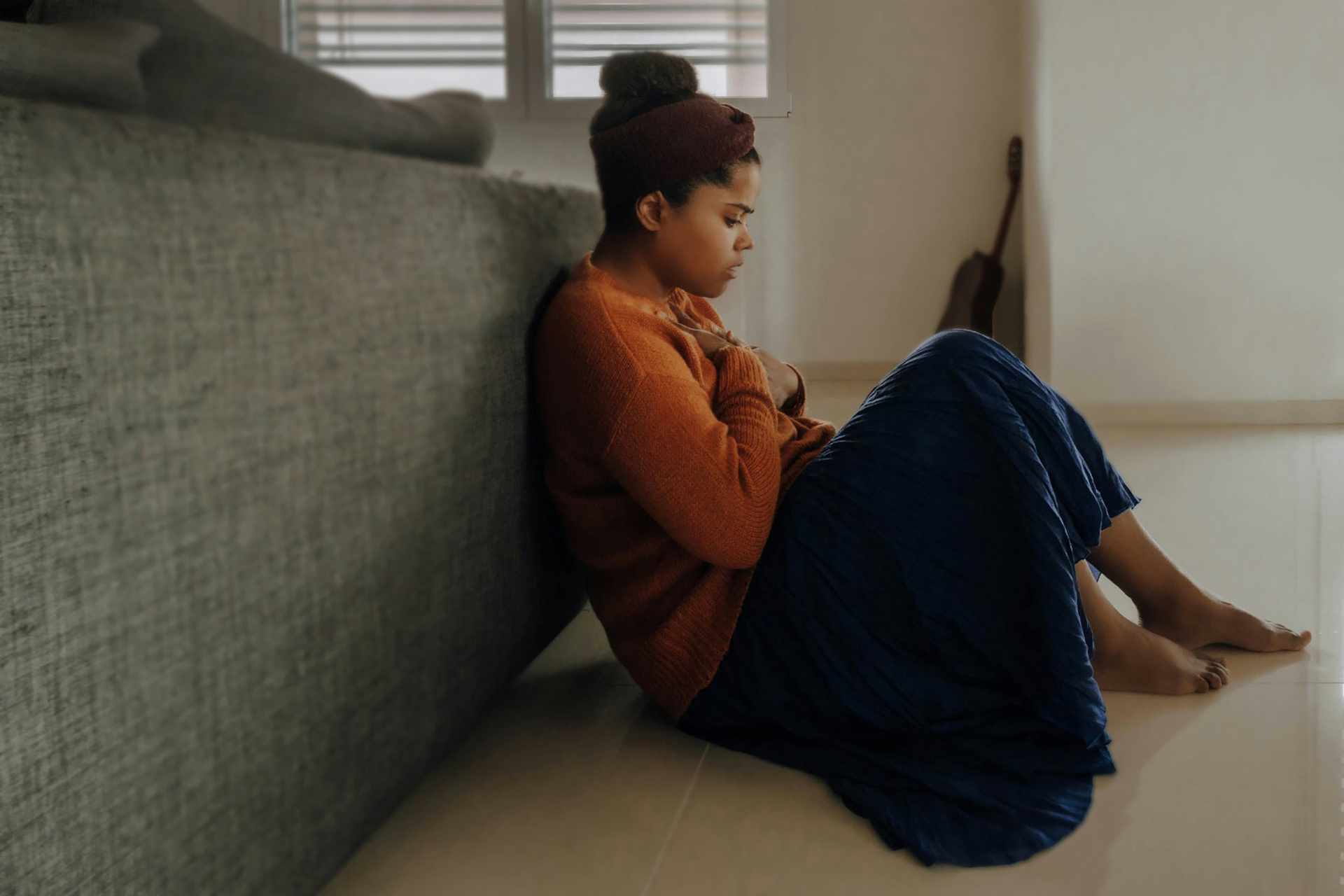10 Anxiety Symptoms: Signs You Might Need a Therapist
Anxiety is a common mental health issue that affects millions of people worldwide. While occasional anxiety is a normal part of life, it is normal to feel anxious in response to stress or danger. However, chronic and severe anxiety can significantly impact your well-being and daily functioning.
If you’re wondering:
“How do I know if I need an anxiety therapist?”
Here are some signs that you might benefit from seeing an anxiety therapist.

People with anxiety disorders may experience intense anxiety in social situations or when facing actual or perceived threats, even when the anxiety feels disproportionate to the actual danger present. Common signs include excessive worry, difficulty concentrating, irritability, and physical symptoms like a racing heartbeat or chest pain, as well as other symptoms such as a heavy feeling in the chest or a dry throat.
Introduction to Anxiety
Anxiety is a natural response to stress or perceived danger, often described as a feeling of worry, nervousness, or unease. While everyone experiences occasional anxiety in response to everyday situations, anxiety disorders are mental health conditions that involve excessive anxiety, fear, or worry that persists and interferes with daily life. These disorders are among the most common mental health issues worldwide, affecting millions of people of all ages.
There are several types of anxiety disorders, including generalized anxiety disorder (GAD), social anxiety disorder (also known as social phobia), panic disorder, specific phobias, separation anxiety disorder, and selective mutism. Each type has its own set of symptoms, but common symptoms of anxiety include persistent worry, trouble concentrating, physical symptoms like a racing heartbeat or chest pain, and intense anxiety in social situations or when facing actual or perceived threats.
Recognizing the difference between a normal reaction to stress and an anxiety disorder is crucial. If anxiety starts to impact your ability to function or enjoy life, it may be time to seek professional help from a mental health provider.
1. Persistent Worrying
Find yourself constantly worrying about various aspects of your life, from work to personal relationships, and these worries feel overwhelming and uncontrollable. It might be time to seek anxiety counseling.
2. Physical Symptoms
Anxiety can manifest physically through symptoms like headaches, muscle tension, rapid heartbeat, sweating, or gastrointestinal issues. Persistent physical symptoms with no apparent medical cause could indicate anxiety. However, certain medical conditions can cause similar symptoms, so it’s important to rule out other health issues when experiencing persistent physical symptoms.
3. Avoidance Behavior
Avoiding situations, places, or activities because they make you anxious is a red flag. This can include avoiding social gatherings, work responsibilities, or even everyday tasks.
4. Impact on Daily Life
When anxiety starts to interfere with your ability to function at work, maintain relationships, or carry out daily activities, it’s a clear sign that professional help is needed.
5. Sleep Disturbances
Difficulty falling asleep, staying asleep, or experiencing restless sleep due to anxious thoughts can be a strong indicator of an anxiety disorder.
6. Irrational Fears
Experiencing intense, irrational fears or phobias, such as social anxiety disorder, can be debilitating and might require the intervention of an anxiety therapist.
7. Constant Fatigue
Feeling constantly tired or drained, even after a full night’s sleep, can be a symptom of anxiety. Chronic stress and anxiety can exhaust your body and mind.
8. Lack of Concentration
Struggling to focus, experiencing memory problems, or having difficulty making decisions can be linked to anxiety.
9. Uncontrollable Thoughts
Racing thoughts or obsessive thinking patterns that you can’t control can be a sign of an anxiety disorder.
10. Panic Attacks
Experiencing sudden, intense bouts of fear or panic, often accompanied by physical symptoms like shortness of breath, chest pain, or dizziness, is a significant sign that you need anxiety therapy.
If after reading the first part of this post you decide you need help from an anxiety therapist and don’t know what to do next, don’t worry.

In the following text, we will:
-
Guide you through understanding therapy for anxiety.
-
Help you decide if you need it.
-
Tell you what it looks like.
-
Give tips on how to choose the right anxiety therapist.
-
Give tips on how to manage this condition by yourself.
Causes and Risk Factors for Anxiety
Anxiety disorders can develop from a complex mix of genetic, environmental, psychological, and medical factors. Having blood relatives with anxiety or other mental health conditions can increase your risk, suggesting a genetic component. Traumatic events, such as experiencing or witnessing physical or sexual abuse, a serious accident, or the loss of a loved one, are significant risk factors, especially if these events occur during childhood.
Chronic stress from financial problems, work pressures, or ongoing relationship difficulties can also contribute to the development of anxiety disorders. Certain medical problems, such as cardiovascular disease or chronic pain, and the use of specific medications, may trigger or worsen symptoms of anxiety. Additionally, other mental health conditions like depression or post traumatic stress disorder often occur alongside anxiety, making symptoms more severe.
Understanding your personal risk factors can help you and your mental health provider develop effective strategies to reduce anxiety and prevent it from interfering with your daily life.
Complications of Untreated Anxiety
When anxiety disorders go untreated, they can lead to a range of serious complications that affect both mental and physical health. Persistent, severe anxiety can increase the risk of developing depression, substance abuse problems, and even suicidal thoughts or behaviors. Chronic anxiety may also contribute to physical health issues, such as high blood pressure, cardiovascular disease, and chronic pain conditions.
Untreated anxiety can make it difficult to perform everyday tasks, maintain healthy relationships, or succeed at work or school. It can also lead to social isolation, as individuals may avoid social situations or activities that trigger their symptoms. Over time, the impact of anxiety on daily life can become overwhelming, making it even harder to seek treatment and regain control.
Recognizing the potential complications of untreated anxiety highlights the importance of early intervention and seeking professional help to reduce symptoms and improve overall well-being.
1. Understanding Therapy for Anxiety
Recognizing the signs that you might need help is the first step. But what if you’re already considering therapy and wondering about its effectiveness?
We will answer any questions you might have now.
What if Therapy Doesn’t Help Anxiety?
It’s essential to remember that therapy might not work immediately for everyone.
However, it’s crucial to give it time and communicate openly with your therapist.
If you feel that one approach isn’t helping, there are other methods and treatments available. It’s about finding what works best for you. Persistence and collaboration with your therapist can lead to finding the right strategy for your anxiety.
When Isn’t Therapy Helpful?
Therapy might not be helpful if there’s a lack of commitment or if the therapist-client relationship isn’t a good fit.
It’s essential to find a therapist you trust and feel comfortable with. If the therapeutic alliance isn’t strong, it may hinder progress, so don’t hesitate to switch therapists if needed.
Can I Get Better Without Therapy?
While some people manage their anxiety through self-help strategies, lifestyle changes, and support from friends and family, others may need professional help to see significant improvement.
It’s important to assess the severity of your anxiety and seek help if self-management isn’t enough.
For some, a combination of therapy and self-help strategies works best.
2. What Does Therapy and Counseling for Anxiety Look Like?
Understanding how therapy for anxiety can help and what to expect can make the process less daunting.
Therapy and counseling for anxiety at Psychology Blossom involve a personalized approach tailored to each individual’s needs.
The process begins with an initial assessment, followed by goal setting, and the use of evidence-based techniques like Cognitive Behavioral Therapy (CBT). CBT focuses on current thought patterns and behaviors rather than exploring past stressful events, making it effective for many clients without the need to revisit previous stressful events.
Clients develop practical skills to manage anxiety, explore underlying causes, and receive ongoing support to empower positive change.
Progress is regularly monitored, with follow-up sessions ensuring long-term success.
How Often Should You Go to Therapy?
The frequency of therapy sessions depends on the severity of your anxiety and your therapist’s recommendations.
Typically, therapy starts with weekly sessions and may decrease in frequency as you make progress. Consistency is key to achieving the best results.
How Mental Health Counseling Helps with Anxiety
Mental health counseling provides a safe space to explore your thoughts and feelings, develop coping strategies, and work through the underlying causes of your anxiety.
Therapists can offer various techniques to help manage and reduce anxiety symptoms, improving your overall mental health.
3. Finding the Right Therapist and Therapy
Choosing the right therapist and type of therapy is crucial for effective anxiety management.
What Therapist Is Best for Anxiety?
A licensed clinical psychologist, psychiatrist, or counselor with experience in treating anxiety disorders is ideal.
Specializations in CBT, exposure therapy, or mindfulness-based therapies can be particularly effective. Their expertise in these areas can provide you with tailored and effective treatment.
Which Therapy Is Best for Anxiety?
Cognitive-behavioral therapy (CBT) is widely considered the most effective therapy for anxiety.
Other beneficial therapies include exposure therapy, dialectical behavior therapy (DBT), and mindfulness-based stress reduction (MBSR). Each of these individual therapies offers different techniques to help you manage and reduce anxiety.
4. Best Practices and Techniques for Managing Anxiety on Your Own
In addition to therapy, there are several effective ways to combat anxiety.
What Are the Best Ways to reduce Anxiety?
Effective ways to fight anxiety include regular physical exercise, practicing mindfulness and relaxation techniques, maintaining a healthy lifestyle, and seeking social support.
Professional therapy and, in some cases, medication can also be highly beneficial. Antidepressants work not only for treating depression but also for managing anxiety disorders, making them a versatile option for alleviating various mental health symptoms. Developing a comprehensive approach that includes these strategies can help you manage anxiety more effectively.
What Is the 3-3-3 Rule for Anxiety?
The 3-3-3 rule is a simple technique to help ground yourself during moments of anxiety.
It involves:
-
Looking around and naming three things you see.
-
Listening and naming three sounds you hear.
-
Moving three parts of your body (e.g., rotating your ankles, fingers, or arms).
This exercise helps shift your focus away from anxious thoughts and back to the present moment.
Benefits of Treatment for Anxiety
The good news is that anxiety disorders are highly treatable, and seeking help can make a significant difference in your quality of life. Effective treatments for anxiety include therapy sessions with a mental health provider, such as cognitive-behavioral therapy (CBT), exposure therapy, and mindfulness-based approaches. These therapies help you develop coping skills, challenge irrational fears, and learn relaxation techniques to relieve anxiety.
In some cases, antidepressant medications or other medications may be prescribed to help reduce symptoms of anxiety, especially when therapy alone is not enough. Treating anxiety disorders can also improve physical health, reduce the risk of complications, and help you regain confidence in facing everyday situations.
With the right support and treatment plan, you can manage anxiety, reduce its impact on your daily life, and achieve lasting improvements in your mental health.
Psychology Blossom Clinic: Your Partner in Overcoming Anxiety Symptoms and Treating Anxiety disorders
At Psychology Blossom Clinic, we understand how debilitating anxiety can be and how important it is to get the right support.
Our team of experienced anxiety therapists is dedicated to helping you regain control of your life through personalized anxiety therapy.
We offer a range of evidence-based treatments, including Cognitive-Behavioral Therapy (CBT), mindfulness-based therapies, and exposure therapy, tailored to meet your unique needs.
Conclusion
Anxiety disorders exist and are more common than many people realize, but they are also highly treatable. If you recognize symptoms of anxiety in yourself or a loved one, don’t hesitate to seek professional help. Early intervention can prevent complications, reduce symptoms, and help you regain control over your life.
Remember, seeking treatment is a sign of strength, not weakness. With the support of a qualified mental health provider and the right coping strategies, you can overcome anxiety and enjoy a healthier, more fulfilling life. If you’re ready to take the next step, reach out to a mental health professional or contact Psychology Blossom Clinic to start your journey toward recovery.
Wr recommend This Video to those who want to learn more about anxiety symptoms.











